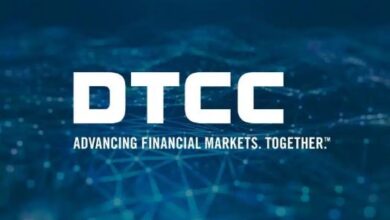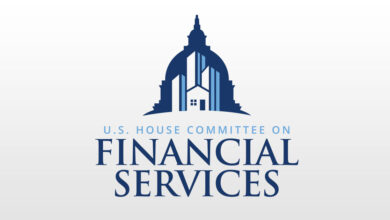Crypto-Backed Mortgages: Revolutionizing Homeownership with Blockchain Technology

Cryptocurrencies, once seen primarily as speculative investments, are rapidly evolving into tools for transformative financial innovation. Among these innovations, crypto-backed mortgages are emerging as a promising alternative to traditional home loans, driven by blockchain technology. This fusion of blockchain and real estate is reshaping the housing market, creating opportunities for buyers and lenders alike.
In 2012, BTCJam introduced the concept of Bitcoin-backed loans, allowing individuals to use Bitcoin as collateral to borrow funds. By 2016, the platform had facilitated over 16,000 loans across more than 120 countries, with average loan sizes ranging from $400 to $600. This early adoption of cryptocurrency in lending helped demonstrate its potential as a viable tool for securing loans, paving the way for the broader integration of blockchain technology in the housing market.
Understanding Crypto-Backed Mortgages
A crypto-backed mortgage is a home loan secured by cryptocurrency instead of traditional factors like credit scores or income history. Instead of liquidating their digital assets to fund a property purchase, borrowers pledge their cryptocurrency as collateral, allowing them to retain ownership while leveraging its value for the loan.
Cryptocurrencies such as Bitcoin or Ethereum are used as collateral in crypto-backed mortgages. Due to the volatility of cryptocurrencies, lenders typically require a higher loan-to-value (LTV) ratio, meaning borrowers must pledge more collateral than the loan amount. Blockchain-based smart contracts are often used to automate and enforce mortgage terms, helping to reduce costs and increase transparency. The interest rates and terms of the loan are determined by both the value of the pledged crypto and the borrower’s profile.
Crypto-backed mortgages offer several distinct advantages. They enable borrowers to avoid capital gains tax that would be triggered by selling their crypto assets. Additionally, borrowers can retain their cryptocurrency and benefit from potential future appreciation. This option is particularly beneficial for individuals without strong credit histories but who hold substantial crypto holdings, providing access to home financing in a way that traditional methods may not allow.
Blockchain’s Role in Crypto-Backed Mortgages
Blockchain technology enhances security, transparency, and efficiency in crypto-backed mortgages. It allows for the use of smart contracts, which automate key processes such as loan disbursements, tracking collateral value, and enforcing repayment terms. When a borrower pledges crypto as collateral, the smart contract automatically releases the loan. It also monitors the value of the collateral, triggering margin calls or liquidation if the value declines. These contracts enforce repayment terms, ensuring that borrowers meet their obligations or face penalties for default. These smart contracts reduce paperwork, expedite approvals, and foster trust between lenders and borrowers by ensuring secure, verifiable transactions.
Decentralized finance (DeFi) platforms enable direct connections between borrowers and lenders, bypassing traditional intermediaries. Using liquidity pools, DeFi protocols offer flexible loan terms tailored to individual needs. Blockchain also facilitates the tokenization of real estate, allowing for fractional ownership and easier collateralization. This increases liquidity and reduces transaction costs by eliminating intermediaries, while also enhancing transparency and minimizing fraud risks. Furthermore, blockchain-based identity verification streamlines the mortgage approval process by offering secure, decentralized methods for confirming borrowers’ identities.
Risks and Realities
While crypto-backed mortgages offer promising potential, they come with several challenges and risks that both borrowers and lenders must consider. One major challenge is the volatility of cryptocurrency. Price fluctuations can lead to the need for over-collateralization, with margin calls or liquidation occurring during downturns. If the value of the collateral drops below a certain threshold, borrowers may be required to provide additional assets to maintain the loan, or risk losing their crypto holdings.
Regulatory uncertainty is another key concern, as governments have yet to establish consistent frameworks for cryptocurrency-backed financial products. This lack of clear regulation can create legal and compliance risks for both borrowers and lenders, with potential changes in laws impacting the stability of crypto-backed mortgages.
The limited adoption of crypto-backed mortgages by traditional lenders further restricts borrower options. Many financial institutions remain hesitant to embrace this innovative model, which can limit access for individuals seeking these types of loans.
Lastly, liquidity risks arise when collateral must be sold in the event of a default. Sudden sell-offs of cryptocurrency holdings may disrupt lenders’ recovery efforts, impacting their ability to recover the loan amount in full.
Real-World Examples of Crypto-Backed Mortgages
Milo, a Miami-based startup, provides 30-year loans of up to $5 million for real estate investment purposes, with interest rates between 3.95% and 5.95%. Borrowers can finance up to 100% of the property’s value and use Bitcoin, Ether and certain stablecoins as collateral.
Figure, based in North Carolina, offers home equity lines of credit (HELOCs) secured by cryptocurrency. They are launching a waitlist for crypto-related mortgage loans up to $20 million, accepting Bitcoin and Ether as collateral. The company offers 30-year fixed-rate mortgages with rates starting at 6%, with monthly collateral adjustments.
USDC Homes platform offers crypto-backed mortgages for those interested in purchasing real estate in Texas. Accepting Bitcoin, Ethereum, USDC, and other cryptocurrencies as collateral, the loan rate ranges from 5.5% to 7.5%.
Salt, based in Denver, offers business and personal loans with Bitcoin, Ether, or Dogecoin as collateral. The company provides loans ranging from 12 to 60 months, with interest rates as low as 0.52%. They are expanding their services internationally, including to countries like Bermuda, Brazil, and the UAE.
BlockFi, based in New Jersey, allows borrowers to use Bitcoin, Ether, or Litecoin as collateral for loans with up to a 50% Loan-to-Value (LTV) ratio. The company offers 12-month loans with interest rates starting at 4.5%.
The Road Ahead
The continued evolution of blockchain technology and cryptocurrencies points to a promising future for crypto-backed mortgages. As cryptocurrencies gain wider acceptance, traditional banks may begin incorporating crypto-backed loan products into their offerings, bridging the gap between conventional and digital finance.
Meanwhile, DeFi platforms are likely to innovate further, providing borrowers with global, customizable loan solutions that cater to diverse needs. Additionally, advancements in collateral management, such as dynamic collateral requirements and insurance products, could help mitigate the risks associated with crypto volatility, making these loans more appealing to lenders and driving broader adoption.
Open questions:
Could the UAE, given its proactive blockchain strategy, emerge as a leader in integrating crypto-backed mortgages into its financial ecosystem? Are there any organizations or startups actively exploring crypto-backed mortgages in the UAE?
Are there other startups or regions that are pioneering unique models in this space, such as integrating multi-collateral approaches?
Could stablecoins, with their lower volatility, play a more prominent role in future crypto-backed mortgages, enhancing their appeal to a broader audience?




